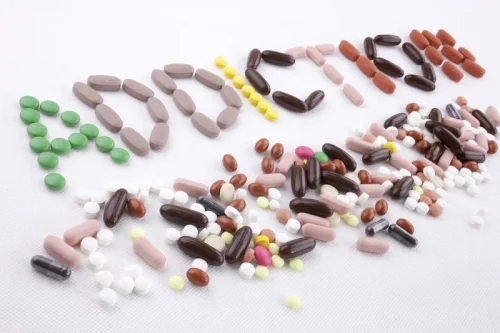
Alcohol can be detected from 12 to 24 hours in the breath, as well as in saliva. And when tested in the hair, especially at the root, alcohol can be detected up to 90 days after a person has stopped drinking. There has been some research conducted on how abstaining from alcohol detoxifies your liver over time. Alcohol causes dehydration, which is why you get a hangover the next day after a night of drinking. Drinking plenty of water will reduce dehydration and get water back in your system.
Do I need to detox at an alcohol addiction treatment center?
- A balanced diet not only supports your body’s detoxification processes but also improves your overall health, making it easier to recover from alcohol consumption.
- This leads to some people experiencing flushing, a sudden reddening of the skin that often occurs in the face or neck region.
- Many people believe that an alcohol metabolite called ethyl glucuronide can be detected by ETG tests for about 80 hours.
- Our recovery programs are based on decades of research to deliver treatment that really works.
You can also help your body metabolize alcohol by avoiding highly processed foods and drinks like chips, white bread, and soda. This added stress can make it difficult for your liver to metabolize alcohol in a timely manner. The primary benefits how to flush alcohol out of your system of enrolling in treatment are minimizing withdrawal symptoms and preventing complications. Medications like acamprosate, benzodiazepines, disulfiram, and naltrexone can help make withdrawal more manageable and sustain abstinence.

When to Seek Professional Help
The Centers for Disease Control and Prevention (CDC) recommends that adults get at least seven hours of sleep per night. It also forces you to breathe deeply, which delivers more oxygen to your liver so it can break down alcoholic drinks more effectively. If you don’t have enough https://ecosoberhouse.com/ ADH or ALDH, your stomach will send the alcohol directly to the small intestine. From there, it hits your bloodstream and your brain, and you start feeling its effects. It can be hard to find (or even know) the balance of how much alcohol your body is able to handle.
How to Fast for Liver Health
Opting for the right foods and beverages can play a role in supporting your body’s natural detoxification process after alcohol consumption. If you drink excessive amounts of water it can lead to water intoxication or poisoning, which affects brain function due to the swelling of cells, including brain cells. This swelling increases pressure within the brain, leading to symptoms like confusion, drowsiness, and headaches. In severe cases, it might result in high blood pressure and a slowed heart rate. Age, weight, food intake during alcohol consumption, medications, liver health, and the time between drinks all contribute to how long alcohol remains in your body.

- Good gut health starts with prebiotics, a type of fiber that feeds the good bacteria in your gut called probiotics.
- A hair follicle ethylglucuronide (EtG) test will reveal alcohol use for up to 90 days after consumption.
- Our approach combines medication-assisted treatment with personalized coaching to provide comprehensive support throughout your journey.
- During a medically-supervised alcohol detox, a multidisciplinary healthcare team keeps you as comfortable as possible by managing your withdrawal symptoms.
Others accumulate over time and significantly affect your physical and mental health and quality of life. Your blood alcohol content (BAC) level is reduced by 0.015 per hour. And ultimately, the best way to avoid having to flush alcohol out of your system is by drinking responsibly. The best you can do is take steps such as finding a designated driver, not drinking on an empty stomach, and having a friend around if the effects of the detoxing process are more intense. The body generally eliminates 0.015 grams of alcohol per deciliter of blood each hour. If someone with alcohol problems also battles depression, their symptoms may worsen when drinking.
- By drinking plenty of water, you can help flush out toxins and support your organs in processing alcohol metabolites more efficiently.
- But a full detox is needed for the most benefit, and how much time that takes depends on a variety of personal factors.
- Your body absorbs alcohol more slowly when you have food in your stomach.
- Detox diets often involve the use of laxatives, diuretics, vitamins, minerals, teas, and other foods thought to have detoxing properties.
- The National Institute on Alcohol Abuse and Alcoholism (NIAAA) defines moderate drinking as having one drink or less per day if you’re a woman and having two drinks or less per day if you’re a man.
- However, the toxins in alcohol actually lower the amount of glucose in your bloodstream, which can lead to hypoglycemia (low blood sugar).
Stage three: 24-48 hours after alcohol withdrawal

To ensure you are drinking in moderation, check the strength or percentage of pure alcohol in your drink. This can be trickier to do if you are drinking at a bar or restaurant, but you can use the above as a guideline. If you don’t like drinking water straight up, you can add a little flavoring to it. Ninety percent of the time, the alcohol goes through the liver, and only around 10% of it gets out through sweat and urine. At Healthfully, we strive to deliver objective content that is accurate and up-to-date. Our team periodically reviews articles in order to ensure content quality.
Concerned About Your Drinking? Take the Alcohol Addiction Test
Cirrhosis of the Liver

